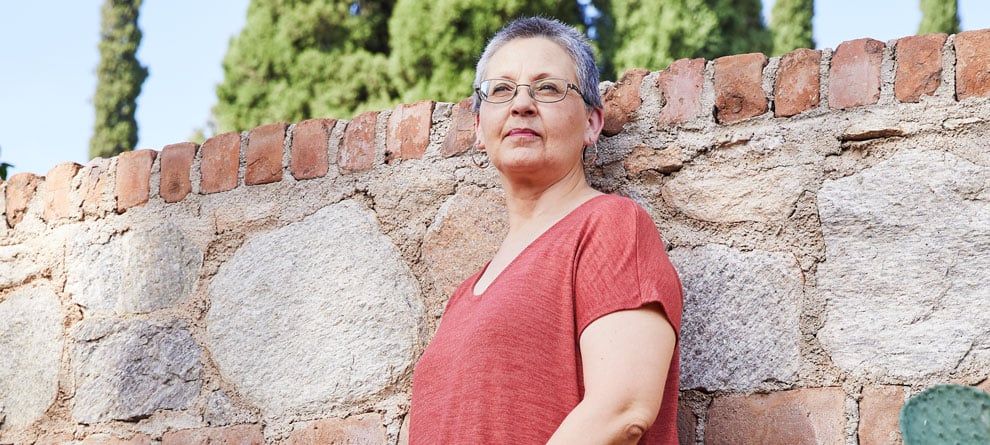Nevertheless, She Persisted
My epilepsy officially started when I was 7 years old. I would stare off into space during school, which I later learned was a kind of seizure. Eventually my teachers told my mom to take me to the doctor and I was told that I have epilepsy. It was a word I was never allowed to repeat. At the time, I lived in a small, rural town in New Mexico, and being anything but “normal” was not acceptable. So instead, my family and I told people that I suffered from dizzy spells and we all just pretended that everything was OK.
I didn’t understand what was happening to me until a year or two later when my third-grade teacher cared enough to take me to the library. She showed me an ancient-looking purple book, and it was all about epilepsy. I greedily consumed every word. It was such an empowering experience—learning about my condition and realizing that I wasn’t a freak, that there were others like me in the world. I decided in that moment that someday I would work with people with epilepsy.
When I got to high school, my “daydreaming” spells turned into full-blown seizures and I couldn’t hide the fact that I had epilepsy anymore. During the first year, students were given the option to choose between the “career” track or the “college” track to determine the focus of their studies moving forward. Even though my guidance counselor told me that college wasn’t an option for me, I—determined to prove him wrong—picked the college track. But my efforts were thwarted. I was told that my classes had already been picked out…for the career track. The absolute best I could hope for, they said, was to get a job and support myself.
So instead of going to college after high school, I started working in a cafeteria. After a few years of serving food on the hot line and being constantly covered in stains, I had a breakdown—or perhaps a breakthrough. I remember looking around and thinking, I want more. I immediately stopped what I was doing and applied to college.
I was soon accepted into Eastern New Mexico University. Because I wasn’t allowed to take any college prep courses in high school, it took me much longer than usual to get my degree—I even failed out of chemistry three times! Stubborn as ever though, I persisted and eventually managed to graduate with a bachelor’s in psychology. But I didn’t stop there: I then went on to get my master’s in counseling, in the hopes of fulfilling my dream to work within the epilepsy community.
Now I work in a hospital emergency room as a psychiatric assessor, which means I assess a person’s mental health when they come into the ER and get them the help they need. I don’t know who’s going to come through the doors each night. Sometimes it’s people who just had their first seizure and I get to help them understand what’s happening to them and reassure them that they are not alone.
As a therapist, it’s my job to help people see that life’s difficulties shouldn’t hold them back or stop them from living an incredible, fulfilling life—so I’m determined to practice what I preach.
Originally published in EpilepsyAdvocate Fall 2019.
Categories : From Our Magazine
Tags : Blog





